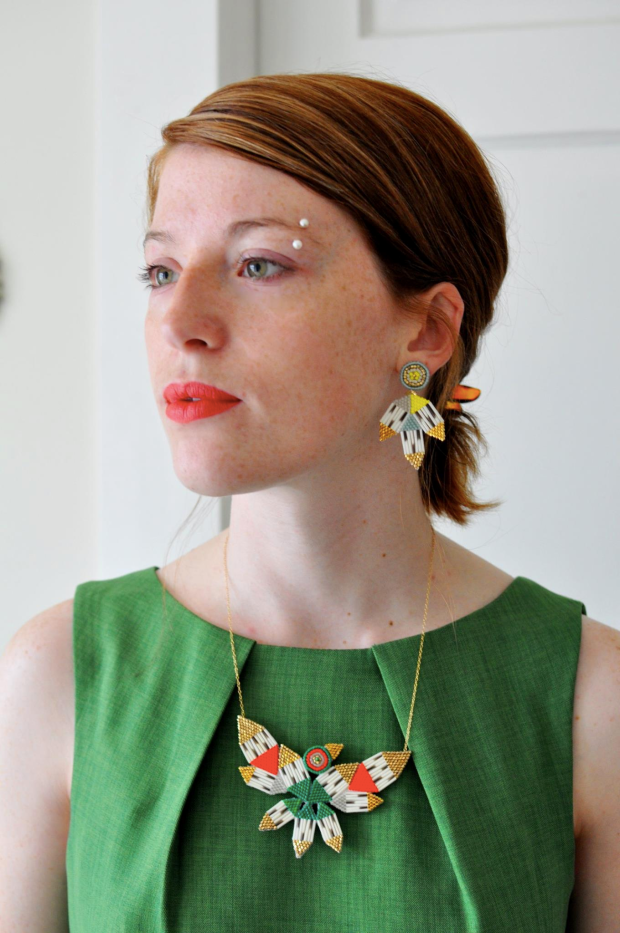**TRIGGER WARNING: contains information about consensual sexual activity, sexual assault and discussion of discriminatory attitudes and actions**
It started when I landed on vh1 Classic while channel surfing and caught the sight of a man throwing his black mane back, eyes wild, black paint smeared on his cheeks, and rep-lipsticked mouth contorted into a snarl at the camera. It was love at first sight.
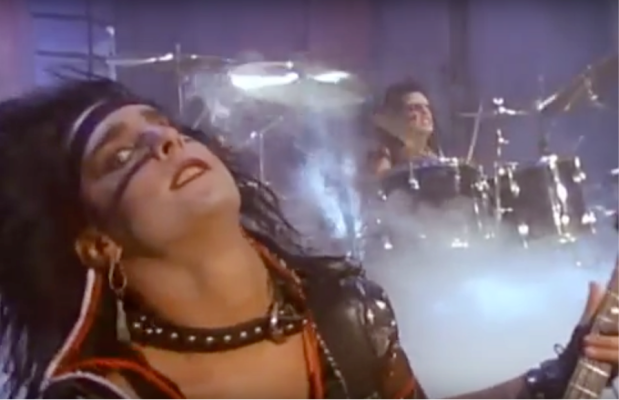
(In the beginning…)
Who was this man? Who was this band, running around in leather, studs and platform boots through fire and smoke? The music sounded vaguely, sort of, kind of like the Beatles, a bit like the groups I had adored in my “scene/emo” phase, but it was different. Louder, flashier, harder, nastier. Exactly what a preteen with hormones in overdrive and an overactive imagination was looking for.
You could argue my glam metal “phase” has persisted well into my adulthood and I would probably agree with you. After hearing those crucial first few songs from Motley Crue, Guns N’ Roses, Ratt and many more of that ilk, I was hooked. Before I had my nose in the works of bell hooks and Frantz Fanon, I read every rock star biography I could get my hands on. Before I knew a thing about black revolutionaries beyond Malcolm X, white men who had gone through the throes of troubled childhoods, lines of coke and divorces with Playboy Playmates were my heroes. These men understood what it was like to be “different”, and as someone who had suffered from crippling feelings of isolation from a fairly young age I found solace in knowing these “freaks” had gone on to be successful many times over. Classic hard rock and heavy metal was full of people telling me to buck authority (which at the time mostly meant my parents, not the white capitalist heterosexist patriarchy) and do my own thing (usually with sex, motorcycles, or drugs involved, but not always). The men of these genres were my everything when it felt like I had nothing.
Classic hard rock and heavy metal intertwined with my life just as I was beginning to explore my sexuality and see where my boundaries lie. Because most of my experiences with black boys (and men) usually involved being cat-called, followed or otherwise creeped on from a young age, white boys appealed tremendously to me. Whereas it appeared black boys felt that they had the right to my mind and my body simply because we shared the same skin color, I was somewhat delighted that white boys never gave me the time of day. I could fantasize about them (usually skater types in eyeliner) in peace. As I became older and bought into the idea that boys my age were not going to cut it because I was more mature physically, psychologically and emotionally, I began to project my yearnings onto the 80s versions of rock stars. The (black, curvaceous) video vixens I thought of as lewd and not respecting themselves in hip hop videos were not on the same level as the (white, thin) models in 80s music videos and on the arms of my favorite rock stars. Nelly swiping a credit card through a dancer’s buttocks in the “Tip Drill” video was vile and degrading. A slice of cherry pie landing in Bobbie Brown’s lap in the “Cherry Pie” video was silly and funny.
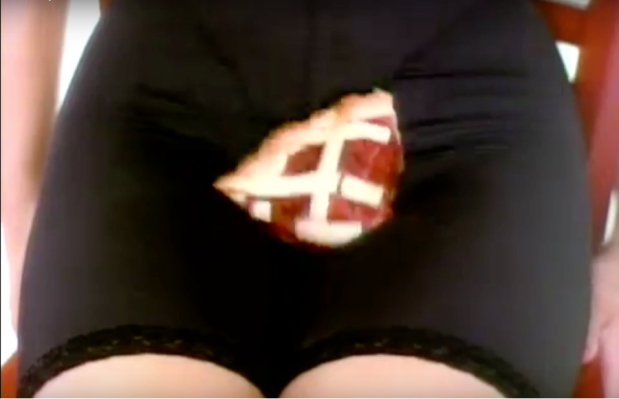
(Glam metal musicians are the kings of subtlety.)
I was so enamored with everything hard rock and heavy metal, particularly glam metal, that I consistently pushed my cognitive dissonance aside and refused to try to even begin to reconcile what it meant for me as a black young girl to idolize primarily white men in their ranging from 20s to 60s.
Tackling this dissonance did not really begin in earnest until I began to become more are of kyriarchy around 17 or 18, ironically coinciding with my new freedom to actually attend concerts and try to mimic the models, wives, girlfriends and groupies I had admired for so long. Topics I investigated – fetishization, tokenism, respectability politics, objectification, power dynamics, code-switching – were setting my wheels spinning and I began to reflect on my personal experiences as a black woman actively seeking white male attention in predominantly white communities. Often in these moments of self-reflection, I felt like a fraud or a traitor to other black women. How could I call myself a feminist or a womanist one moment and the next desperately seeking ways to make myself more appealing to white men – the zenith of all oppressors – through the way I dressed, spoke and carried myself, often to fit into the predefined rules of heteronormativity within the rock music space? Did all these rock stars really understand what it was like to be me? Did they care what it was like to be me? Unfortunately, the more I researched the men I had loved for so many years, the more I saw that they often did not. Even beloved Nikki Sixx, the man on the TV screen that had lit my world aflame years ago, does not have clean hands, as exemplified in this article
(http://www.mtv.com/news/1432411/mtley-cres-sixx-clashes-with-carolina-security-guard/)
So, what is a groupie to do? Do I denounce all those ridiculous poodle rockers and listen only to Prince (my other favorite genre)? Do I swear off of white men and get over my childhood trauma to begin dating black men (who around this time of self-discovery had begun to cast me as a “Nubian Queen” archetype because of my afro and “au-natural beauty”)? Could I still call myself a black, intersectional feminist and also want to be front-row at the Steel Panther concert, getting ogled by the dashing, middle-aged guitarist?
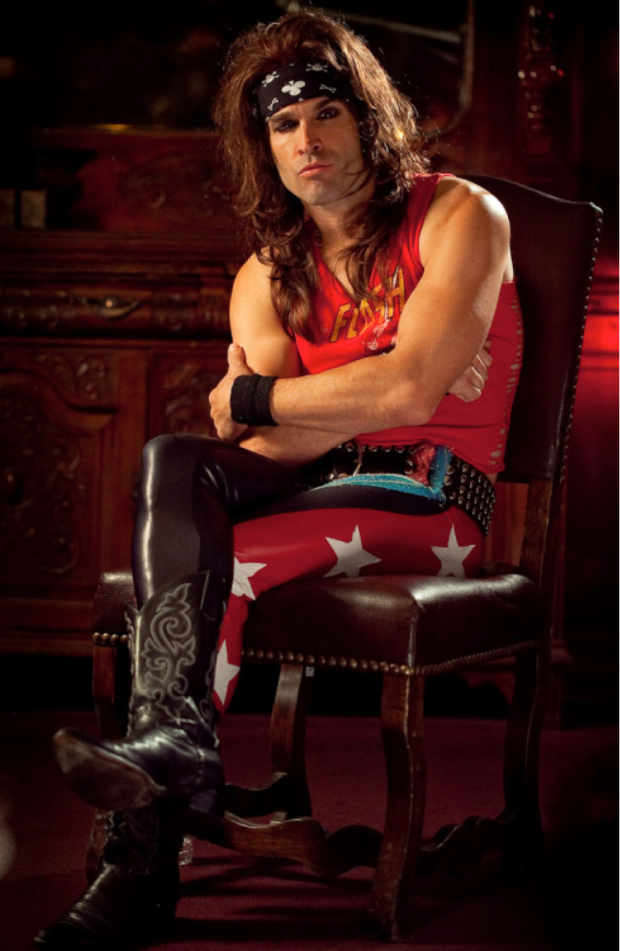
(This Axeslinger Adonis has written many odes such as “Asian Hooker” and “Handicapped Slut”)
Frankly, out of my teenage years and into my 20s, I am still not sure. I am still in the midst of self-discovery in all realms of my life; as such I am deciding how I want to fit into a multitude of identities. I have somewhat outgrown looking to celebrities for guidance for a few different reasons. A primary cause because I have come to see the infallible icons of my adolescence because often the entire role of celebrity in society is they reinforce and normalize systems of oppression. When it comes to critically thinking about people, music, movies or other media that I enjoy, I always try to recognize and analyze a work and how it relates to the “-isms”. I find the five key questions of media literacy (outlined here: http://www.medialit.org/reading-room/five-key-questions-form-foundation-media-inquiry) to be a great starting point:
- Who created this message? (By extension, who is saying it?)
- What creative techniques are used to attract my attention?
- How might different people understand this message differently from me?
- What lifestyles, values and points of view are represented in; or omitted from, this message?
- Why is this message being sent?
From this collection of questions and ensuing answers, I determine how much I am willing to support something, and to what degree does my collusion potentially harm others. Because I have become more assured in myself as a feminist black woman and no longer seek large amounts of direction and validation from without, I am more comfortable within identities that do not centralize the music I listen to. With detachment comes the ability to see things a bit more objectively, so I no longer the impulse to defend people like Nikki Sixx, Axl Rose or more recently David Bowie and Lemmy Kilmister of Mötorhead in the wake of their deaths when others bring up great points about how these men, and many others, have supported white supremacy, sexual assault, and more. My growing confidence in my identity from lived experience, voracious information collection and personal growth as aided by WILL enables me to draw more fitting boundaries for myself as a music fan who paradoxically does not separate musician from music, but can enjoy music without being limited by an musician’s personal beliefs or even their intent with a piece. Similarly, I’m fine being described as a “groupie” I know the history of the that appellation, comprehend how it is used and understood in a variety of contexts, and at the end of the day decide through self-determination how I want that title to represent me. I’ve used similar processes to wrestle with other pieces of myself, including what it means to be “black” and what it means to be “feminist”.
Existing as an amorphous conglomeration of all these pieces is not always easy. Sometimes I feel pangs of self-consciousness when I go to concerts and a woman who is the pinnacle of glam metal (and often white beauty in general) with blonde tresses, light eyes, a large bosom and thin frame gets more attention from a band member than I do. In those moments, however, I try my best to step back and remind myself that staring enviously at other women should not be my main concern. First and foremost I am there for the music, often to get my first-time chance to belt out a power ballad or similar with a band I adore. Aside from interacting with a band as an audience member, concerts are also a chance to alleviate remnants of my preteen isolation by meeting other fans. Something as simple as humanizing that “metal chick” ideal by complimenting her handmade jacket, and in turn receiving glowing praise for my (shoddy) make-up application, makes my concert experience less about being judgmental and “sizing up” and more about having fun and creating a cherished memory. While interactions such as this are not an magic solution to ending oppressive attitudes in hard rock and heavy metal among bands and fans, they help motivate me to continue delineating the right times to ask questions, be critical, and gather “receipts” if you will; to close my laptop, throw on a pink leopard-print dress, and party hard; and when it’s optimal to do all of them simultaneously.
El-Asa Crawford is a 5th year Graphic Communication Design major and Information Technology minor. This is her first and last year with WILL. She looks forward to finally having a safe space to dissect the white supremacist capitalist patriarchy while building her feminist leadership capabilities.
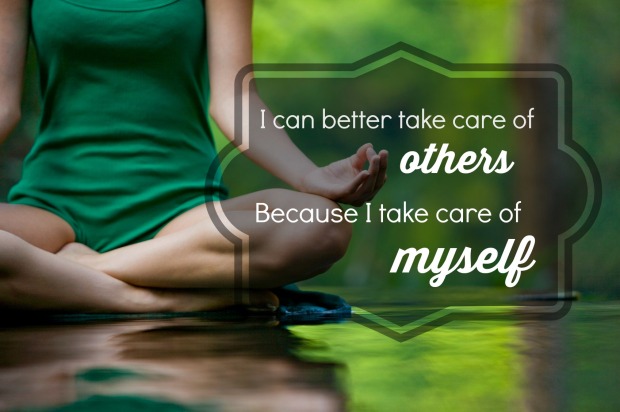 Look at this bullshit that came up when I typed “self-care” into Google Image. Self-care is not only good because it allows women to perform feminized emotional labor for others, you piece of shit “inspirational” photo.
Look at this bullshit that came up when I typed “self-care” into Google Image. Self-care is not only good because it allows women to perform feminized emotional labor for others, you piece of shit “inspirational” photo.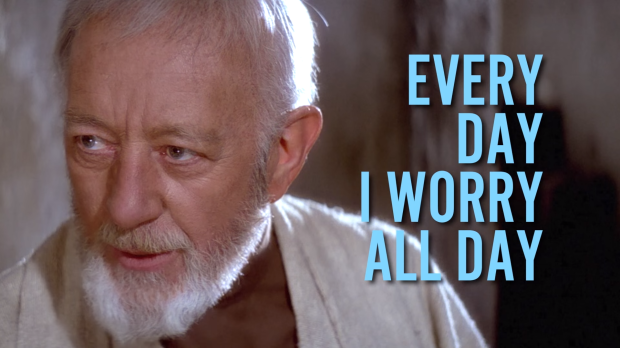 Source:
Source: 